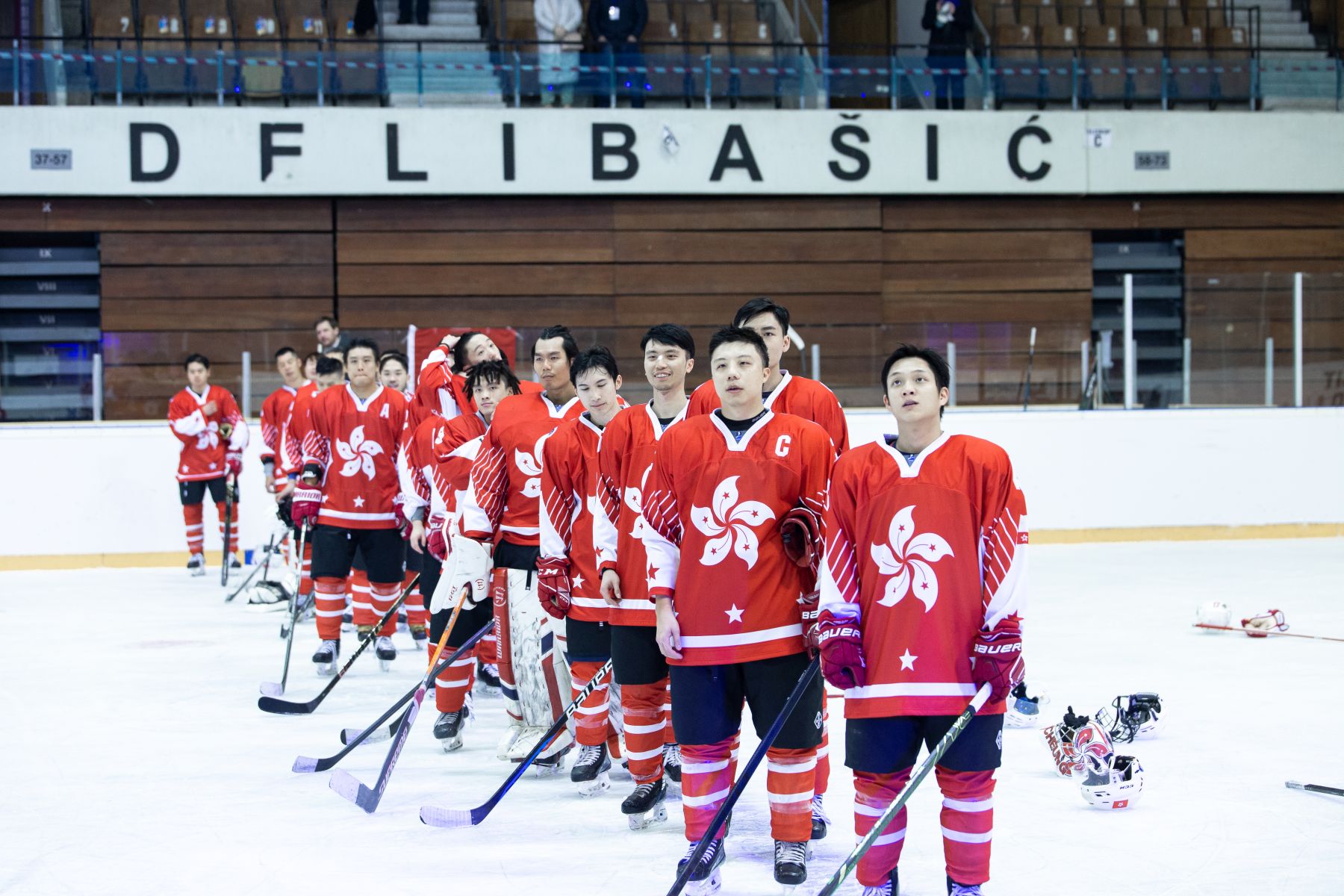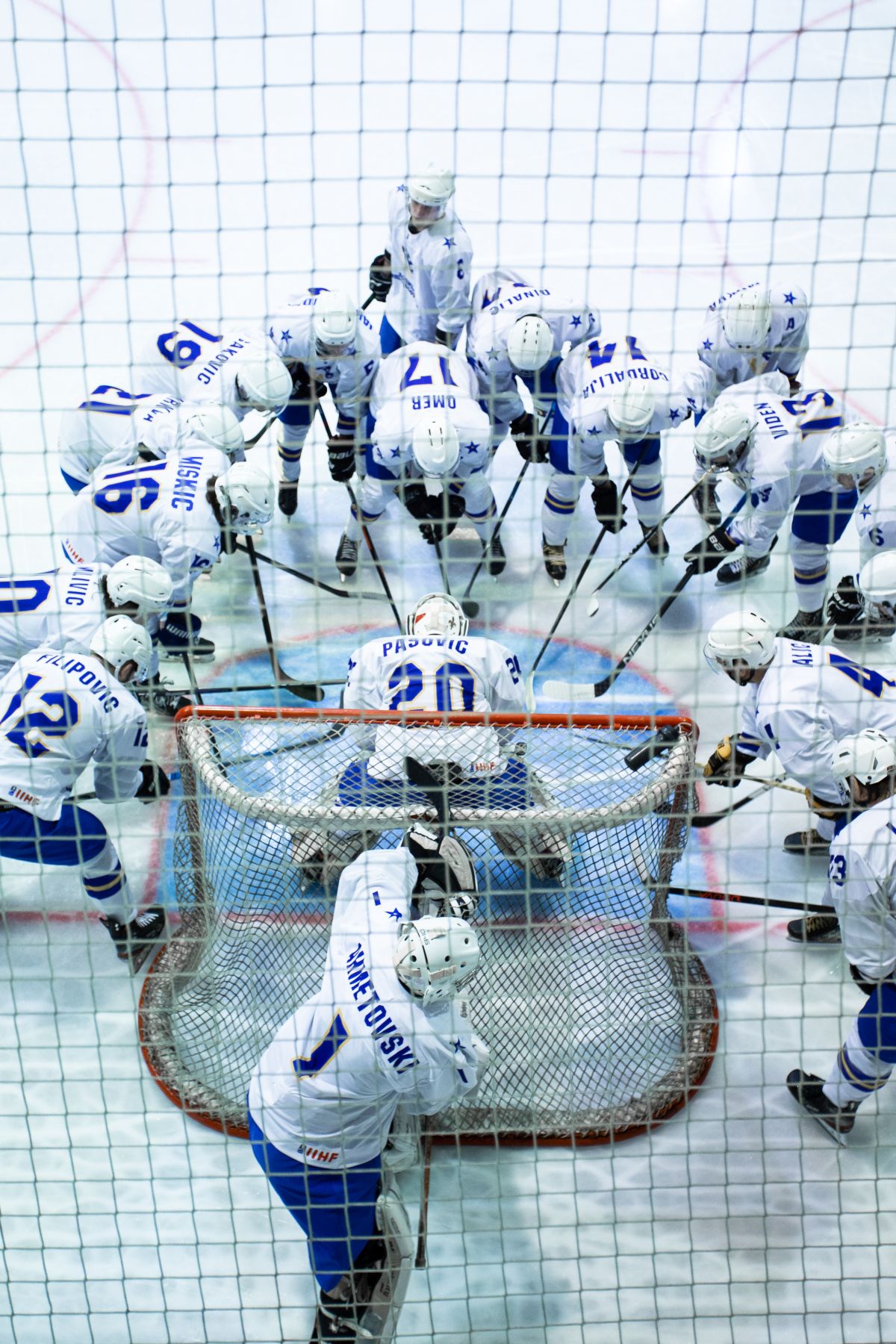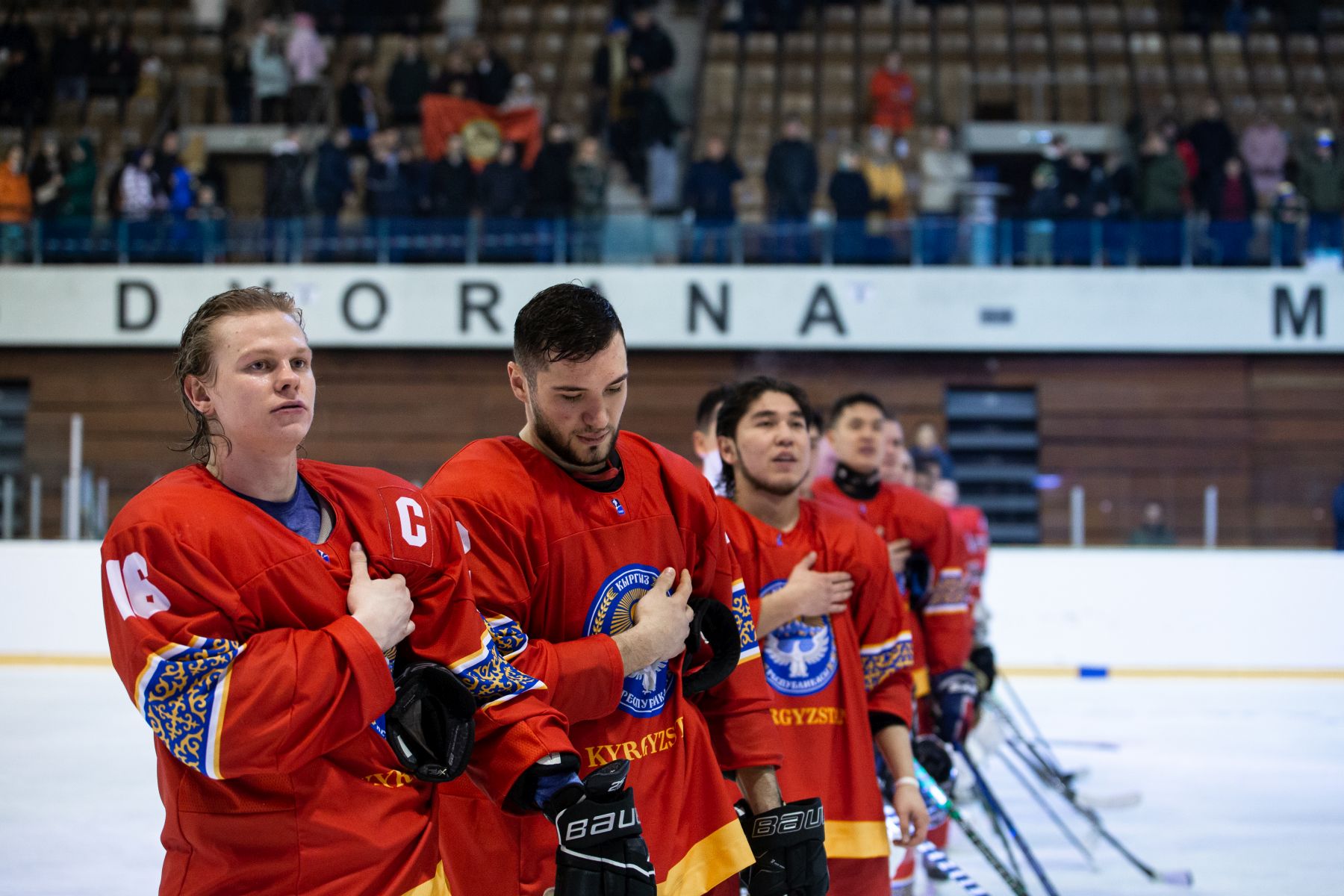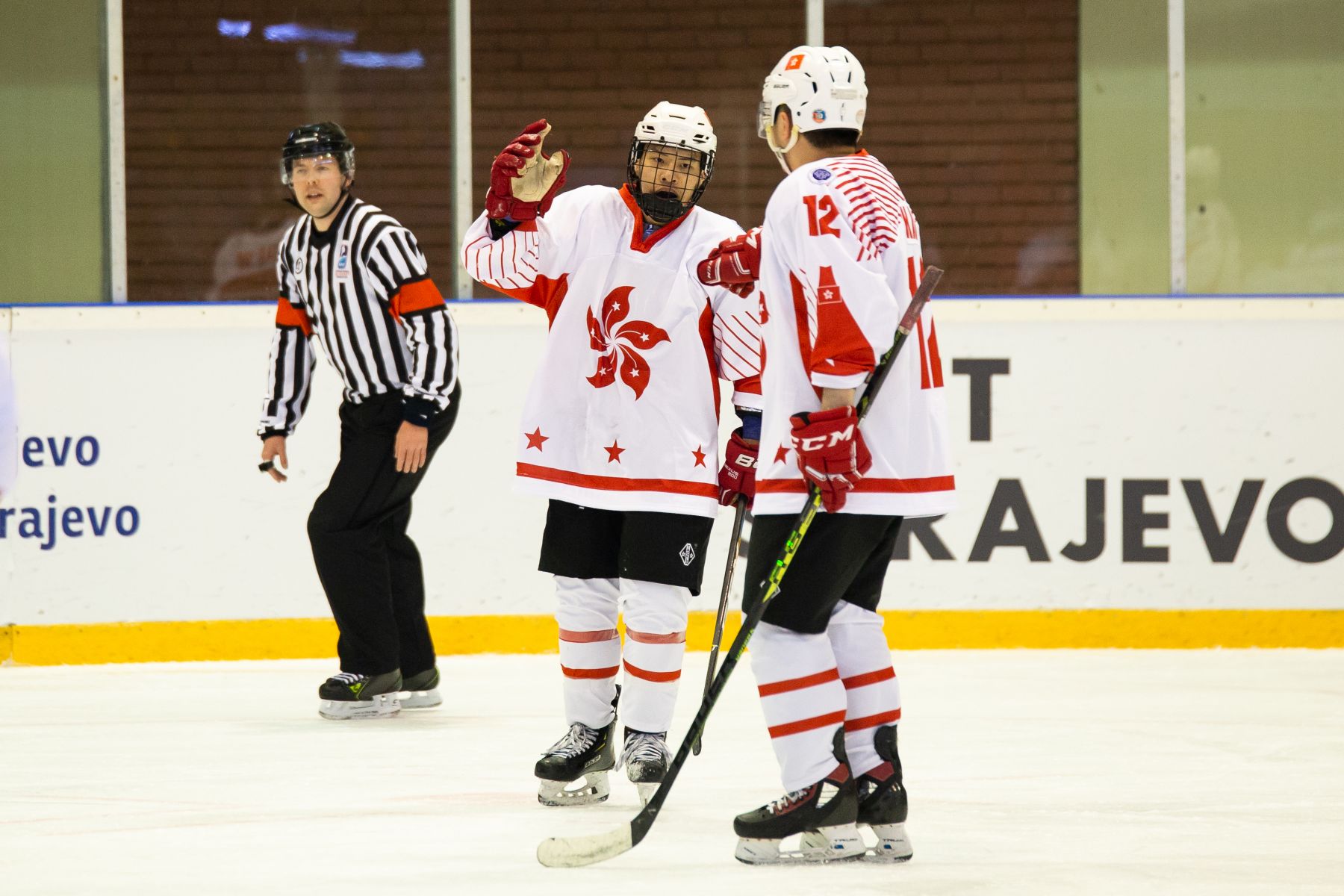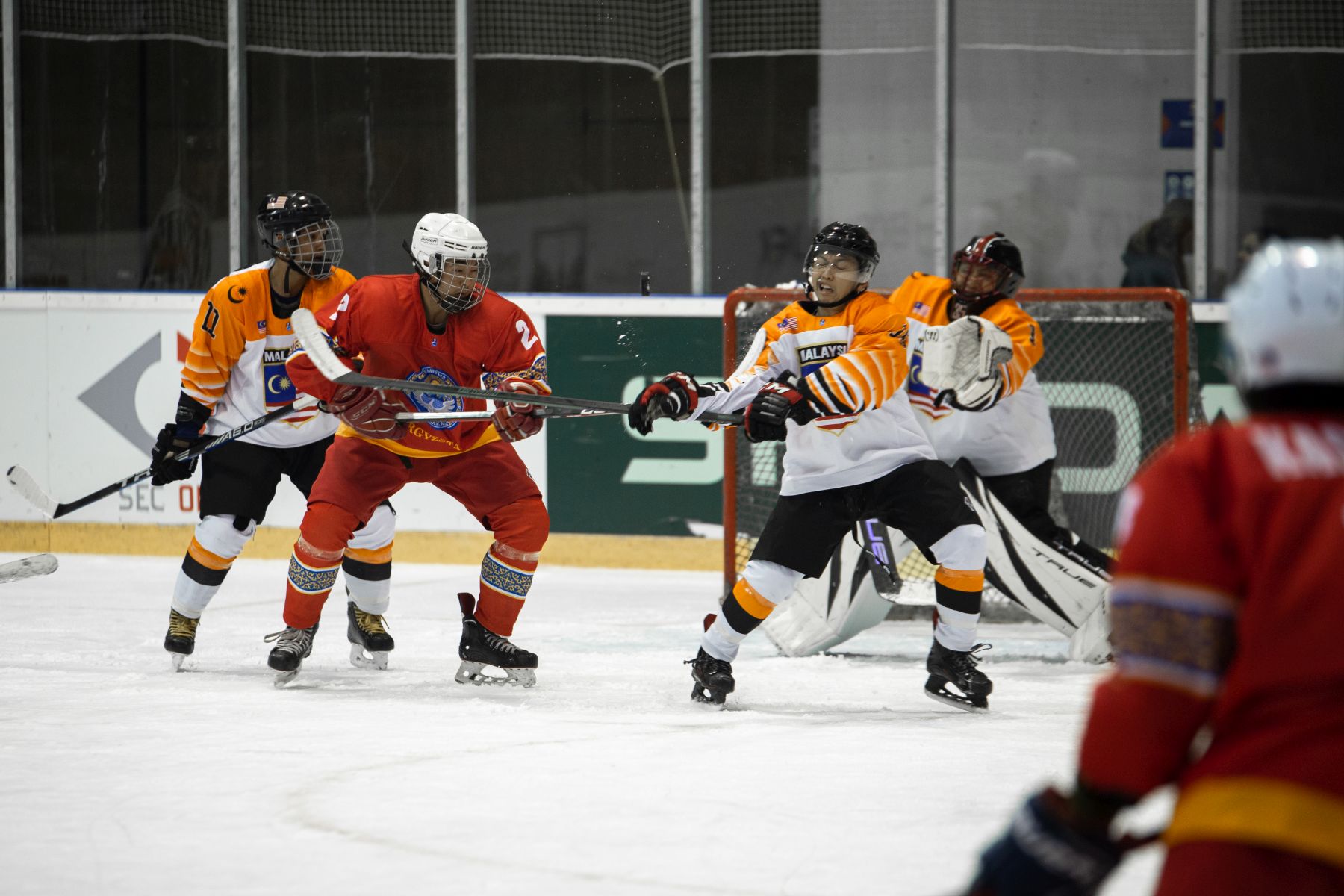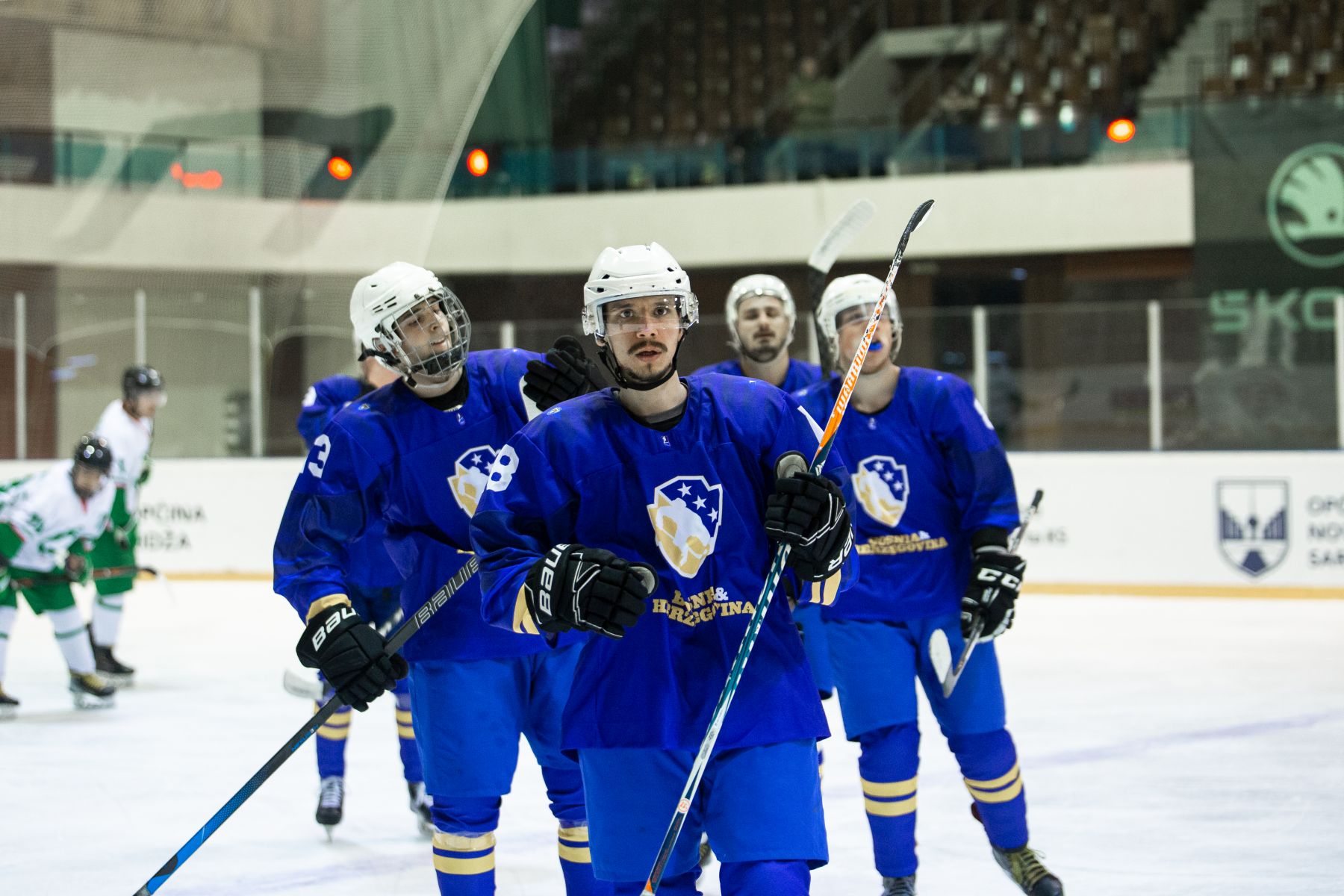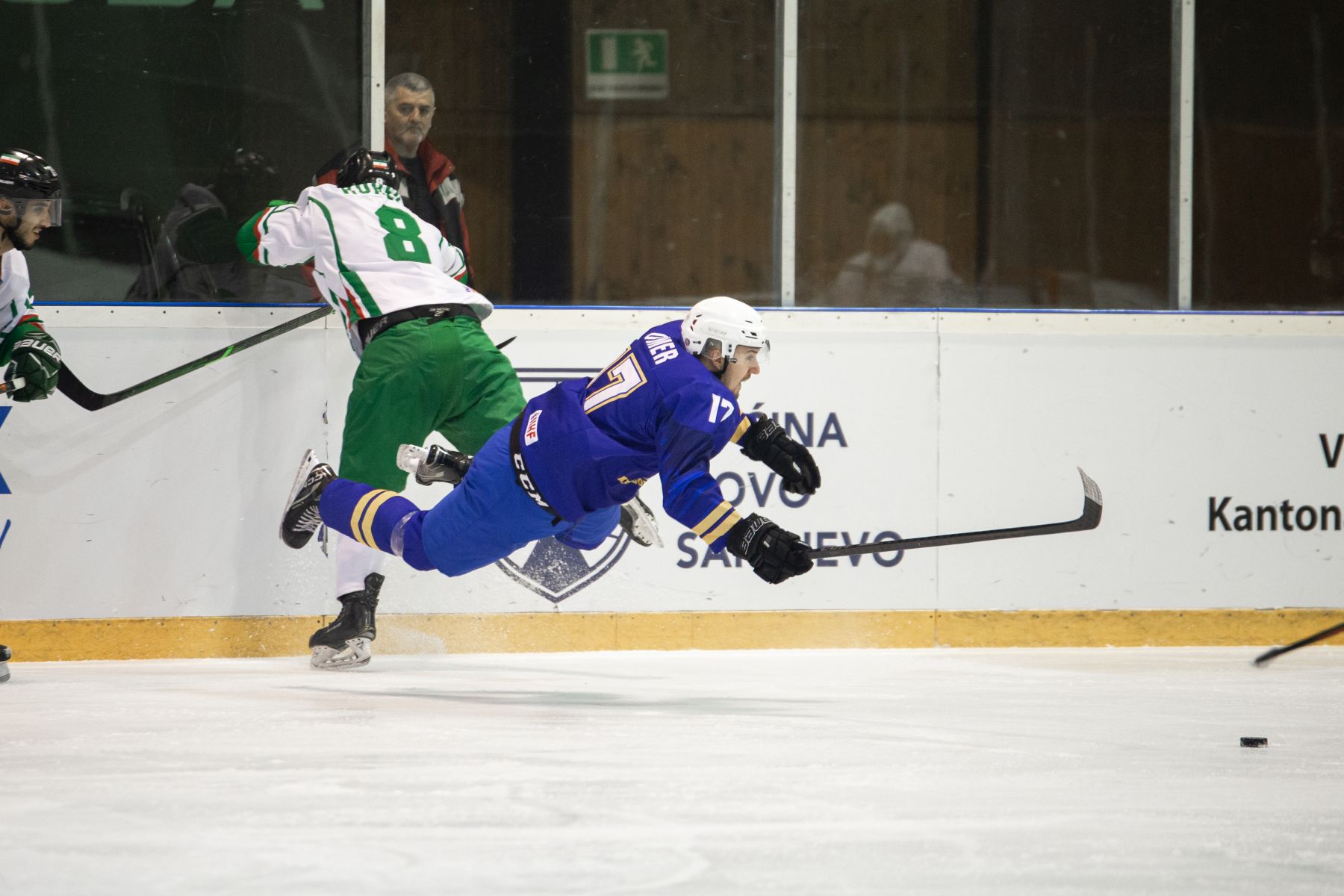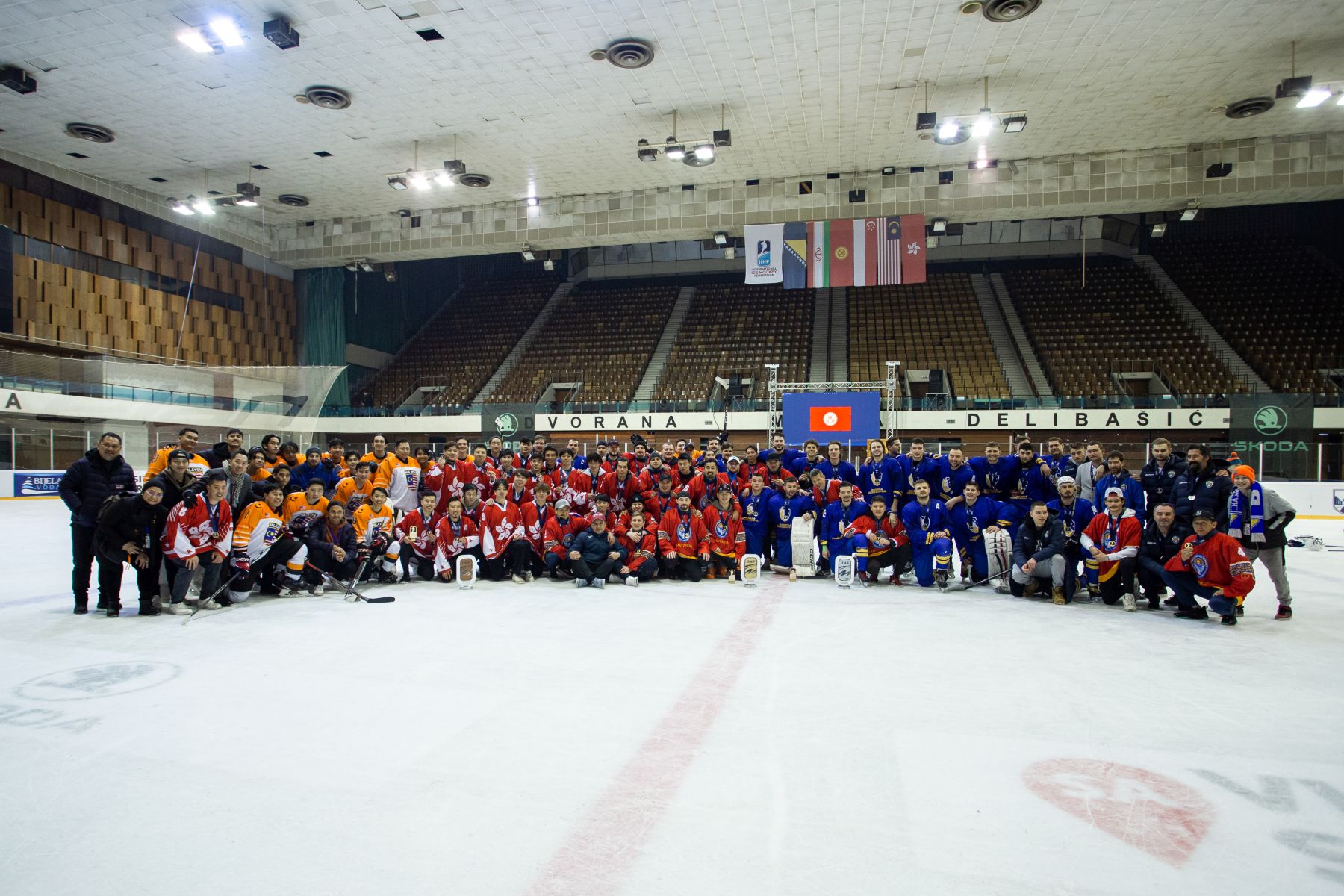Hong Kong, China forward Chung Pan Justin Cheng during the game against Iran.
photo: Jaca Kalac
A day before turning 25, Chung Pan Justin Cheng earned himself an early birthday present that will be hard to top. With a bronze medal hanging around his neck, Cheng had been instrumental in lifting Hong Kong, China to historical heights winning their first-ever medal at an IIHF Ice Hockey World Championship.
Having only lost one game in regular time, the Hong Kongers finished a well-deserved third at the 2023 IIHF Ice Hockey World Championship Division III Group B in Sarajevo, Bosnia & Herzegovina.
Cheng’s contribution en route to bronze was another cause for celebration. Notching 20 points (8+12) in five games, he was fourth overall in scoring and capped off a fine tournament by being voted the top forward of the tournament by the directorate.
“I just wanted to help the team get a medal, because we never got one. It was fun to be back with the boys. It’s been a few years since I’ve last seen them,” said Cheng.
His return had been welcomed with open arms by his teammates. Cheng’s only previous appearance for Hong Kong, China’s men’s team came at the 2015 IIHF Ice Hockey World Championship Division III in Izmir, Türkiye. Eight long years later he returned to skate in the red and white jersey in his second men’s World Championship.
“I’ve been studying at university and usually I had exams when the World Championship is played, so it hasn’t worked out. One year I was also out injured. The team is a lot different now. Back when I started we had a lot younger team,” he said.
Having completed his studies, Cheng is now a resident physiotherapist. Eager to make up for lost time with the national team, Cheng’s return was almost instantly felt. He needed only 3:33 to score and tallied 2+2 in their opener against Bosnia & Herzegovina. Hong Kong, China, which arrived without a single team practice, went on to surrender a 5-3 lead to lose against the hosts after penalty shots.
With one point gained from their opener, they found their scoring touch in their next game, an 11-1 win against Iran. The game that decided their fate came on day three in Sarajevo against Singapore. A memorable 7-6 overtime win, which also is Cheng’s favourite game during his national team career.
“If we would have lost against Singapore, we wouldn’t have gotten a medal. For some of the guys on the team, it might be their last year, so we wanted to get them a medal. The game went back and forth. We tied the game and then won in overtime. It was a big game for us,” said Cheng, who notched a hat trick and an assist, including the vital equalizing goal with 57 seconds left to play in the third period.
Hong Kong, at that time under British administration until 1997, first entered World Championship play in 1987. After one sole appearance, they then disappeared from World Championship play until resurfacing in 2014 competing in Division III in Luxembourg. It was at a time when Hong Kong, China was coached by the former NHL defender Barry Beck. It was the same former New York Rangers captain who the following year gave Cheng his debut in Division III in Izmir, Türkiye.
Having just turned 17, Cheng could not have asked for a better start to his national team career. He scored his and Hong Kong, China’s first goal at 7:42 versus the United Arab Emirates as they finished fourth. When returning to the national team eight years later, Cheng noticed fundamental differences working with Russian coach Nikita Smirnov.
“The style of play back when I made my debut was definitely different from what we have now. Right now, it’s a lot more possession-based and it suits the team as we are neither big nor physical. Nikita has done a very good job in the four-five years he coached the team. You can definitely see the difference in the team’s style of play and we also have a lot more systems going on right now,” said Cheng.
As with many hockey players in Hong Kong, China, Cheng started with inline and was 13-14 when starting to play on the ice. He was 16 when we moved to Canada for studies and has stayed put in North America ever since. But he still keeps his finger on the pulse of the game in Hong Kong, China, which is definitely on the rise according to Cheng.
“Ice hockey grew a lot in the last couple of years in Hong Kong, China. We have two new full-sized rinks, but the costs are also getting higher,” he said.
“The challenge is to try to get the kids to play as much hockey as possible, but at the same time, ice time is very expensive. There are also not a lot of contact leagues in Hong Kong, China. So the change from having played in a U18 league to a physical men’s league is something you have to get used to. When I went to Canada, I quickly had to adjust to the physicality and the style of play,” Cheng said.
Following the completion of his studies, the challenge for Cheng will now be to try juggling a full-time professional career with playing semi-pro hockey in Ontario.
“I still play in a league, two games a week, practise twice a week, so I try to play as much as I can. I will try to play for Hong Kong, China as long as I can and try to help the team. Hopefully, it will take less than eight years before I will be back next time,” he said.
Having only lost one game in regular time, the Hong Kongers finished a well-deserved third at the 2023 IIHF Ice Hockey World Championship Division III Group B in Sarajevo, Bosnia & Herzegovina.
Cheng’s contribution en route to bronze was another cause for celebration. Notching 20 points (8+12) in five games, he was fourth overall in scoring and capped off a fine tournament by being voted the top forward of the tournament by the directorate.
“I just wanted to help the team get a medal, because we never got one. It was fun to be back with the boys. It’s been a few years since I’ve last seen them,” said Cheng.
His return had been welcomed with open arms by his teammates. Cheng’s only previous appearance for Hong Kong, China’s men’s team came at the 2015 IIHF Ice Hockey World Championship Division III in Izmir, Türkiye. Eight long years later he returned to skate in the red and white jersey in his second men’s World Championship.
“I’ve been studying at university and usually I had exams when the World Championship is played, so it hasn’t worked out. One year I was also out injured. The team is a lot different now. Back when I started we had a lot younger team,” he said.
Having completed his studies, Cheng is now a resident physiotherapist. Eager to make up for lost time with the national team, Cheng’s return was almost instantly felt. He needed only 3:33 to score and tallied 2+2 in their opener against Bosnia & Herzegovina. Hong Kong, China, which arrived without a single team practice, went on to surrender a 5-3 lead to lose against the hosts after penalty shots.
With one point gained from their opener, they found their scoring touch in their next game, an 11-1 win against Iran. The game that decided their fate came on day three in Sarajevo against Singapore. A memorable 7-6 overtime win, which also is Cheng’s favourite game during his national team career.
“If we would have lost against Singapore, we wouldn’t have gotten a medal. For some of the guys on the team, it might be their last year, so we wanted to get them a medal. The game went back and forth. We tied the game and then won in overtime. It was a big game for us,” said Cheng, who notched a hat trick and an assist, including the vital equalizing goal with 57 seconds left to play in the third period.
Hong Kong, at that time under British administration until 1997, first entered World Championship play in 1987. After one sole appearance, they then disappeared from World Championship play until resurfacing in 2014 competing in Division III in Luxembourg. It was at a time when Hong Kong, China was coached by the former NHL defender Barry Beck. It was the same former New York Rangers captain who the following year gave Cheng his debut in Division III in Izmir, Türkiye.
Having just turned 17, Cheng could not have asked for a better start to his national team career. He scored his and Hong Kong, China’s first goal at 7:42 versus the United Arab Emirates as they finished fourth. When returning to the national team eight years later, Cheng noticed fundamental differences working with Russian coach Nikita Smirnov.
“The style of play back when I made my debut was definitely different from what we have now. Right now, it’s a lot more possession-based and it suits the team as we are neither big nor physical. Nikita has done a very good job in the four-five years he coached the team. You can definitely see the difference in the team’s style of play and we also have a lot more systems going on right now,” said Cheng.
As with many hockey players in Hong Kong, China, Cheng started with inline and was 13-14 when starting to play on the ice. He was 16 when we moved to Canada for studies and has stayed put in North America ever since. But he still keeps his finger on the pulse of the game in Hong Kong, China, which is definitely on the rise according to Cheng.
“Ice hockey grew a lot in the last couple of years in Hong Kong, China. We have two new full-sized rinks, but the costs are also getting higher,” he said.
“The challenge is to try to get the kids to play as much hockey as possible, but at the same time, ice time is very expensive. There are also not a lot of contact leagues in Hong Kong, China. So the change from having played in a U18 league to a physical men’s league is something you have to get used to. When I went to Canada, I quickly had to adjust to the physicality and the style of play,” Cheng said.
Following the completion of his studies, the challenge for Cheng will now be to try juggling a full-time professional career with playing semi-pro hockey in Ontario.
“I still play in a league, two games a week, practise twice a week, so I try to play as much as I can. I will try to play for Hong Kong, China as long as I can and try to help the team. Hopefully, it will take less than eight years before I will be back next time,” he said.
2023 IIHF Ice Hockey World Championship Division III Group B
OF











